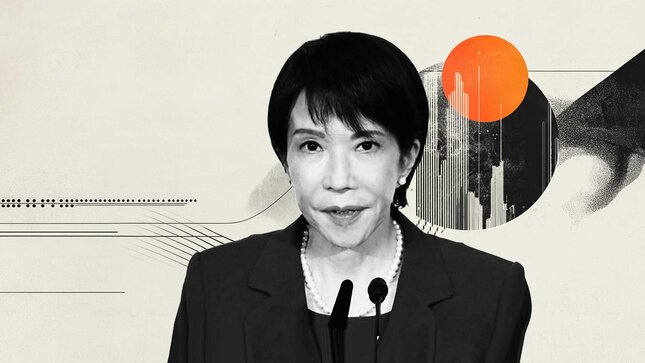Trading the Futures markets requires a trader to open a Futures account with a brokerage firm. The brokerage office will handle all of the documentation needed to open the account. Once the account is funded, usually with a minimum of $5,000 USD, the trader is allowed to place orders in the Futures markets. These funds are kept in a segregated account in your name through a Futures Commission Merchant (FCM). For example, you may have a trading account with TradeStation, but your funds are kept at RJ O’brien, an FCM.
You are then assigned a broker who will assist you with your questions and any support you need understanding the platform for entering your orders. If you should ever need assistance with a reporting error on your trading statements your broker will work with you to resolve this. If for some reason your account has insufficient funds to maintain an open Futures position, then your broker will contact you with a margin call requesting you send cash to replenish your low balance account or the broker will be required to liquidate your position if you cannot obtain the funds needed. In some instances your broker might offer more services, like making trade recommendations or perhaps he has your power of attorney allowing him to make trades in your personal account.
For all of the above services there comes a cost. How much it will cost you depends on how much support you need as a trader. Futures brokers work on commissions charged to you each time you trade a Futures contract on a Futures Exchange. Remember, in the Futures markets you pay a commission on “each” contract you trade. If you are trading 3 E-mini S&P contracts at once you will be charged 3 separate commissions.
If you are a new trader and will need more assistance to place your trades, then expect to pay a little more in commissions than a more experienced trader who can place their own orders without any assistance or support for making trading decisions. When a trader places their own orders and makes their own buy/sell decisions they are called self-directed accounts. Commissions for these traders are typically much lower and are called discounted commissions.
If you allow your broker to do research for you and make trade recommendations then expect to pay a little more in commissions. After all, time is money.
Some brokers will place the trades they have researched for you, without having to disturb you prior to the trade. This is known as a full service broker and you can expect to pay much more in commissions. These brokers are also required to have a power of attorney from you before they can trade your account.
How much you pay for each trade is determined by which of the above mentioned services are provided by your broker. Keep in mind that cheap commissions don’t always make for the best broker. For example, if you are placing Futures trades as a new trader and accidently place a market order in a contract month that is in delivery you could possibly be assigned a Futures contract of whatever market you are trading. For example, corn would be 5,000 bushels sitting in your driveway while crude oil could have you stacking 1,000 barrels of oil. All of this because you decided to take the cheaper route and pay $3.00 less per trade.
The industry standard for discounted commissions is approximately $5.00.
For $5.00 your trade is covered for both sides of the entry and the exit, unlike in the Equities market where you pay a commission to enter the trade and to exit the trade. This is referred to as a round turn (R/T) commission.
As I wrote earlier, you will also pay this $5.00 for each contract you trade. If you trade just one contract expect a commission of $5.00. If you are trading 3 contracts expect to pay $15.00 in commissions.
Your broker does not get this entire $5.00. I am sure they would like to have it, but they only get a very small percentage. Inside this $5.00 are other fees that make up your total commission charge: the first one is the National Futures Association fee which typically is between .10 and .35 per trade, the other fee is the Exchange fee where the Futures Exchange charges you for the right to trade that Futures contract on their platform and can be as high as $2.25 per contract.
A discount broker only gets about .50 to 1.00 per contract you trade. Obviously, this varies from broker to broker depending on the deal they reach with their head office. While these numbers I gave you do not add up to $5.00, you can get a feel for where your commission dollars go.
“People rarely succeed unless they have fun in what they are doing.” Dale Carnegie
This content is intended to provide educational information only. This information should not be construed as individual or customized legal, tax, financial or investment services. As each individual's situation is unique, a qualified professional should be consulted before making legal, tax, financial and investment decisions. The educational information provided in this article does not comprise any course or a part of any course that may be used as an educational credit for any certification purpose and will not prepare any User to be accredited for any licenses in any industry and will not prepare any User to get a job. Reproduced by permission from OTAcademy.com click here for Terms of Use: https://www.otacademy.com/about/terms
Editors’ Picks

AUD/USD gets ready to punch through 0.7100
The intense sell-off in the Greenback underpins the solid performance of the Aussie Dollar on Monday, motivating AUD/USD to add to recent gains while challenging the key 0.7100 barrier, or fresh YTD highs, at the same time.

EUR/USD extends its optimism past 1.1900
EUR/USD retains a firm underlying bid, surpassing the 1.1900 mark as the NA session draws to a close on Monday. The pair’s persistent uptrend comes as the US Dollar remains on the defensive, with traders staying cautious ahead of upcoming US NFP prints and CPI data.

Gold picks up pace, retargets $5,100
Gold gathers fresh steam, challenging daily highs en route to the $5,100 mark per troy ounce in the latter part of Monday’s session. The precious metal finds support from fresh signs of continued buying by the PBoC, while expectations that the Fed could lean more dovish also collaborate with the uptick.

XRP struggles around $1.40 despite institutional inflows
Ripple (XRP) is extending its intraday decline to around $1.40 at the time of writing on Monday amid growing pressure from the retail market and risk-off sentiment that continues to keep investors on the sidelines.

Japanese PM Takaichi nabs unprecedented victory – US data eyed this week
I do not think I would be exaggerating to say that Japanese Prime Minister Sanae Takaichi’s snap general election gamble paid off over the weekend – and then some. This secured the Liberal Democratic Party (LDP) an unprecedented mandate just three months into her tenure.
RECOMMENDED LESSONS
Making money in forex is easy if you know how the bankers trade!
I’m often mystified in my educational forex articles why so many traders struggle to make consistent money out of forex trading. The answer has more to do with what they don’t know than what they do know. After working in investment banks for 20 years many of which were as a Chief trader its second knowledge how to extract cash out of the market.
5 Forex News Events You Need To Know
In the fast moving world of currency markets where huge moves can seemingly come from nowhere, it is extremely important for new traders to learn about the various economic indicators and forex news events and releases that shape the markets. Indeed, quickly getting a handle on which data to look out for, what it means, and how to trade it can see new traders quickly become far more profitable and sets up the road to long term success.
Top 10 Chart Patterns Every Trader Should Know
Chart patterns are one of the most effective trading tools for a trader. They are pure price-action, and form on the basis of underlying buying and selling pressure. Chart patterns have a proven track-record, and traders use them to identify continuation or reversal signals, to open positions and identify price targets.
7 Ways to Avoid Forex Scams
The forex industry is recently seeing more and more scams. Here are 7 ways to avoid losing your money in such scams: Forex scams are becoming frequent. Michael Greenberg reports on luxurious expenses, including a submarine bought from the money taken from forex traders. Here’s another report of a forex fraud. So, how can we avoid falling in such forex scams?
What Are the 10 Fatal Mistakes Traders Make
Trading is exciting. Trading is hard. Trading is extremely hard. Some say that it takes more than 10,000 hours to master. Others believe that trading is the way to quick riches. They might be both wrong. What is important to know that no matter how experienced you are, mistakes will be part of the trading process.
The challenge: Timing the market and trader psychology
Successful trading often comes down to timing – entering and exiting trades at the right moments. Yet timing the market is notoriously difficult, largely because human psychology can derail even the best plans. Two powerful emotions in particular – fear and greed – tend to drive trading decisions off course.

